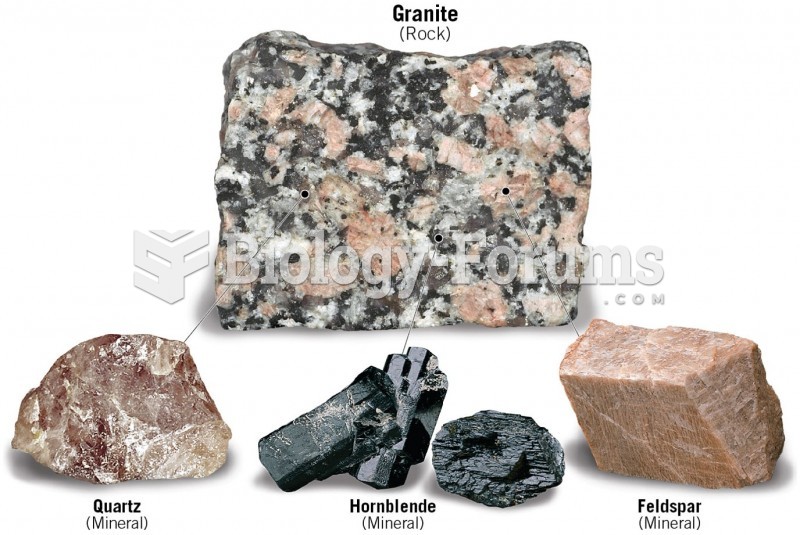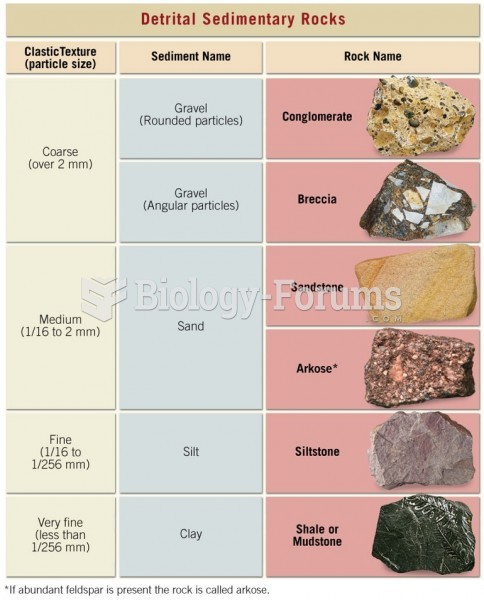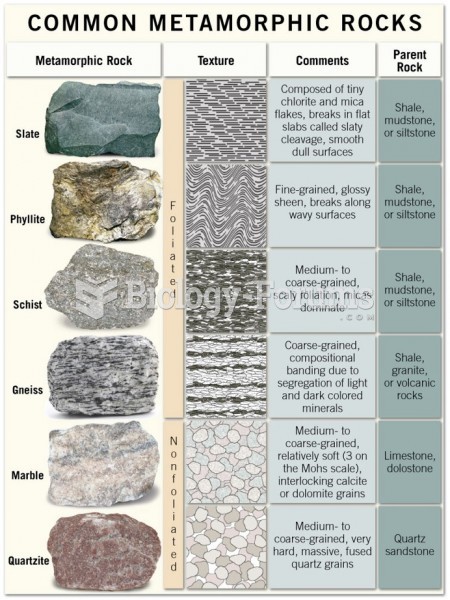|
|
|
Malaria mortality rates are falling. Increased malaria prevention and control measures have greatly improved these rates. Since 2000, malaria mortality rates have fallen globally by 60% among all age groups, and by 65% among children under age 5.
Approximately 500,000 babies are born each year in the United States to teenage mothers.
The first oncogene was discovered in 1970 and was termed SRC (pronounced "SARK").
Barbituric acid, the base material of barbiturates, was first synthesized in 1863 by Adolph von Bayer. His company later went on to synthesize aspirin for the first time, and Bayer aspirin is still a popular brand today.
According to the FDA, adverse drug events harmed or killed approximately 1,200,000 people in the United States in the year 2015.







